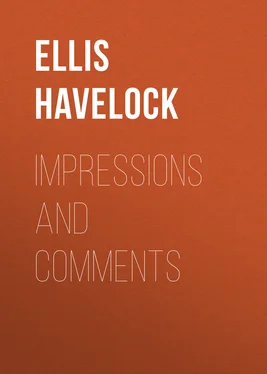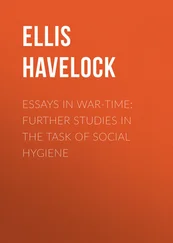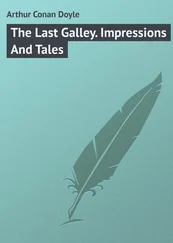Havelock Ellis - Impressions and Comments
Здесь есть возможность читать онлайн «Havelock Ellis - Impressions and Comments» — ознакомительный отрывок электронной книги совершенно бесплатно, а после прочтения отрывка купить полную версию. В некоторых случаях можно слушать аудио, скачать через торрент в формате fb2 и присутствует краткое содержание. Жанр: foreign_prose, foreign_antique, на английском языке. Описание произведения, (предисловие) а так же отзывы посетителей доступны на портале библиотеки ЛибКат.
- Название:Impressions and Comments
- Автор:
- Жанр:
- Год:неизвестен
- ISBN:нет данных
- Рейтинг книги:4 / 5. Голосов: 1
-
Избранное:Добавить в избранное
- Отзывы:
-
Ваша оценка:
- 80
- 1
- 2
- 3
- 4
- 5
Impressions and Comments: краткое содержание, описание и аннотация
Предлагаем к чтению аннотацию, описание, краткое содержание или предисловие (зависит от того, что написал сам автор книги «Impressions and Comments»). Если вы не нашли необходимую информацию о книге — напишите в комментариях, мы постараемся отыскать её.
Impressions and Comments — читать онлайн ознакомительный отрывок
Ниже представлен текст книги, разбитый по страницам. Система сохранения места последней прочитанной страницы, позволяет с удобством читать онлайн бесплатно книгу «Impressions and Comments», без необходимости каждый раз заново искать на чём Вы остановились. Поставьте закладку, и сможете в любой момент перейти на страницу, на которой закончили чтение.
Интервал:
Закладка:
Havelock Ellis
Impressions and Comments
PREFACE
For many years I have been accustomed to make notes on random leaves of the things in Life and Thought which have chanced to strike my attention. Such records of personal reaction to the outer and inner world have been helpful to my work, and so had their uses.
But as one grows older the possibilities of these uses become more limited. One realises in the Autumn that leaves no longer have a vital function to perform; there is no longer any need why they should cling to the tree. So let them be scattered to the winds!
It is inevitable that such Leaves cannot be judged in the same way as though they constituted a Book. They are much more like loose pages from a Journal. Thus they tend to be more personal, more idiosyncratic, than in a book it would be lawful for a writer to be. Often, also, they show blanks which the intelligence of the reader must fill in. At the best they merely present the aspect of the moment, the flash of a single facet of life, only to be held in the brain provided one also holds therein many other facets, for the fair presentation of the great crystal of life. So it comes about that much is here demanded of the Reader, so much that I feel it rather my duty to warn him away than to hold out any fallacious lures.
The fact has especially to be reckoned with that such Impressions and Comments, stated absolutely and without consideration for divergent Impressions and Comments, may seem, as a friend who has read some of them points out, to lack explicit reasonableness. I trust they are not lacking in implicit reasonableness. They spring, even when they seem to contradict one another, from a central vision, and from a central faith too deeply rooted to care to hasten unduly towards the most obvious goal. From that central core these Impressions and Comments are concerned with many things, with the miracles of Nature, with the Charms and Absurdities of the Human Worm, that Golden Wire wherefrom hang all the joys and the mysteries of Art. I am only troubled because I know how very feebly these things are imaged here. For I have only the medium of words to work in, only words, words that are flung about in the street and often in the mud, only words with which to mould all my images of the Beauty and Gaiety of the World.
Such as they are, these random leaves are here scattered to the winds. It may be that as they flutter to the earth one or another may be caught by the hand of the idle passer-by, and even seem worthy of contemplation. For no two leaves are alike even when they fall from the same tree.
HAVELOCK ELLIS.IMPRESSIONS AND COMMENTS
July 24, 1912 .—I looked out from my room about ten o'clock at night. Almost below the open window a young woman was clinging to the flat wall for support, with occasional floundering movements towards the attainment of a firmer balance. In the dim light she seemed decently dressed in black; her handkerchief was in her hand; she had evidently been sick.
Every few moments some one passed by. It was quite clear that she was helpless and distressed. No one turned a glance towards her—except a policeman. He gazed at her searchingly as he passed, but without stopping or speaking; she was drunk, no doubt, but not too obtrusively incapable; he mercifully decided that she was of no immediate professional concern to him. She soon made a more violent effort to gain muscular control of herself, but merely staggered round her own escaping centre of gravity and sank gently on to the pavement in a sitting posture.
Every few moments people continued to pass within a few inches of her—men, women, couples. Unlike the priest and the Levite in the parable, they never turned away, but pursued their straight course with callous rectitude. Not one seemed so much as to see her. In a minute or two, stimulated perhaps by some sense of the impropriety of her position, she rose to her feet again, without much difficulty, and returned to cling to the wall.
A few minutes later I saw a decently-dressed young woman, evidently of the working class, walk quietly, but without an instant's hesitation, straight up to the figure against the wall. (It was what, in Moscow, the first passer-by would have done.) I could hear her speaking gently and kindly, though of what she said I could only catch, "Where do you live?" No answers were audible, and perhaps none were given. But the sweet Samaritan continued speaking gently. At last I heard her say, "Come round the corner," and with only the gentle pressure of a hand on the other's arm she guided her round the corner near which they stood, away from the careless stream of passengers, to recover at leisure. I saw no more.
Our modern civilisation, it is well known, long since transformed "chivalry"; it was once an offer of help to distressed women; it is now exclusively reserved for women who are not distressed and clearly able to help themselves. We have to realise that it can scarcely even be said that our growing urban life, however it fosters what has been called "urbanity," has any equally fostering influence on instinctive mutual helpfulness as an element of that urbanity. We do not even see the helpless people who go to the wall or to the pavement. This is true of men and women alike. But when instinctive helpfulness is manifested it seems most likely to reveal itself in a woman. That is why I would like to give to women all possible opportunities—rights and privileges alike—for social service.
July 27 .—A gentle rain was falling, and on this my first day in Paris since the unveiling of the Verlaine monument in the Luxembourg Gardens, immediately after I left Paris last year, I thought there could be no better moment to visit the spot so peculiarly fit to be dedicated to the poet who loved such spots—a "coin exquis" where the rain may fall peacefully among the trees, on his image as once on his heart, and the tender mists enfold him from the harsh world.
I scarcely think the sculptor quite happily inspired in his conception of the face of the charming old man I knew of old in his haunts of the Boulevard Saint-Michel. It is too strong a face, too disdainful, with too much character. Verlaine was sympathetic, simple, childlike, humble; when he put on an air of pride it was with a deliberate yet delightful pose, a child's pose. There is an air of almost military rigidity about the pride of this bust; I do not find Verlaine in that trait.
Verlaine's strength was not that of character; it was that of Nature. I could imagine that the Silenus, whom we see with his satellites near by, might be regarded in its expression, indeed in the whole conception of the group—with its helpless languor and yet its divine dominance—as the monument of that divine and helpless poet whom I still recall so well, as with lame leg and stick he would drift genially along the Boulevard a few yards away.
July 31. —At the hotel in Dijon, the flourishing capital of Burgundy, I was amused to note how curiously my room differed from what I once regarded as the type of the French room in the hotels I used to frequent. There is still a Teutonic touch in the Burgundian; he is meticulously thorough. I had six electric lights in different positions, a telephone, hot and cold water laid on into a huge basin, a foot-bath, and, finally, a wastepaper-basket. For the rest, a severely simple room, no ornaments, nothing to remind one of the brace of glass pistols and all the other ugly and useless things which filled my room at the ancient hotel in Rouen where I stayed two years ago. And the "lavabo," as it is here called, a spacious room with an ostentatiously noisy rush of water which may be heard afar and awakens one at night. The sanitary and mechanical age we are now entering makes up for the mercy it grants to our sense of smell by the ferocity with which it assails our sense of hearing. As usual, what we call "Progress" is the exchange of one Nuisance for another Nuisance.
Читать дальшеИнтервал:
Закладка:
Похожие книги на «Impressions and Comments»
Представляем Вашему вниманию похожие книги на «Impressions and Comments» списком для выбора. Мы отобрали схожую по названию и смыслу литературу в надежде предоставить читателям больше вариантов отыскать новые, интересные, ещё непрочитанные произведения.
Обсуждение, отзывы о книге «Impressions and Comments» и просто собственные мнения читателей. Оставьте ваши комментарии, напишите, что Вы думаете о произведении, его смысле или главных героях. Укажите что конкретно понравилось, а что нет, и почему Вы так считаете.












